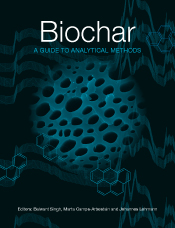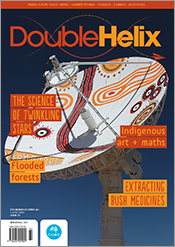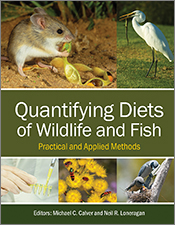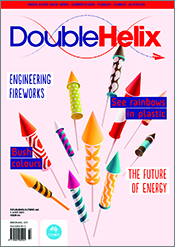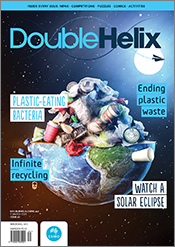Biochar
A Guide to Analytical Methods
Edited by: Balwant Singh, Marta Camps-Arbestain, Johannes LehmannThe first book to comprehensively describe analytical procedures and techniques for biochar analysis.
Interest in biochar among soil and environment researchers has increased dramatically over the past decade. Biochar initially attracted attention for its potential to improve soil fertility and to uncouple the carbon cycle, by storing carbon from the atmosphere in a form that can remain stable for hundreds to thousands of years. Later it was found that biochar had applications in environmental and water science, mining, microbial ecology and other fields. + Full description
Beneficial effects of biochar and its environmental applications cannot be fully realised unless the chemical, physical, structural and surface properties of biochar are known. Currently many of the analytical procedures used for biochar analysis are not well defined, which makes it difficult to choose the right biochar for an intended use and to compare the existing data for biochars. Also, in some instances the use of inappropriate procedures has led to erroneous or inaccurate values for biochars in the scientific literature.
Biochar: A Guide to Analytical Methods fills this gap and provides procedures and guidelines for routine and advanced characterisation of biochars. Written by experts, each chapter provides background to a technique or procedure, a stepwise guide to analyses, and includes data for biochars made from a range of feedstocks common to all presented methods. Discussion about the unique features, advantages and disadvantages of a particular technique is an explicit focus of this handbook for biochar analyses.
Biochar is primarily intended for researchers, postgraduate students and practitioners who require knowledge of biochar properties. It will also serve as an important resource for researchers, industry and regulatory agencies dealing with biochar.
- Short descriptionNews
Sales in Australia and New Zealand only. Elsewhere, this title is available through CRC Press.
Reviews
"There are 24 chapters, each of which are very comprehensive and provide procedures and guidelines for both routine and advanced characterisation methods. Between them they cover pretty much every type of analysis you could wish to perform on charcoal... I was quite pleased to see that each chapter includes data for the methods presented, from a range of biochar samples.
"...a very well written, interesting and, above all, useful tome."
Oliver Jones, Chemistry in Australia, September 2017, p. 36
Details
Paperback | March 2017 | $ 99.95ISBN: 9781486305094 | 320 pages | 260 x 200 mm
Publisher: CSIRO Publishing
Illustrations, Photographs
ePDF | March 2017
ISBN: 9781486305100
Publisher: CSIRO Publishing
Available from eRetailers
ePUB | March 2017
ISBN: 9781486305117
Publisher: CSIRO Publishing
Available from eRetailers
Features
- Comprehensive coverage of analytical techniques and procedures used for biochar analysis
- Insights into advanced approaches and their applications for biochar analysis, and the advantages and disadvantages of each technique
- Developed and written by experts with extensive knowledge and experience in biochar research and the application of analytical techniques for biochar characterisation
- Step-by-step guidelines for biochar analysis, written in an accessible style and well-supported by illustrations
Contents
Preface and acknowledgements
1. Sampling, storage and preparation of biochar for laboratory analysis
2. Proximate analyses for characterising biochars
3. Biochar pH, electrical conductivity and liming potential
4. Analysis of biochars for C, H, N, O and S by elemental analyser
5. Inorganic carbon
6. Dissolved carbon and LC-OCD of biochar
7. Determination of cation exchange capacity in biochar
8. Determining acidic groups at biochar surfaces via the Boehm titration
9. Total elemental analysis
10. Available nutrients in biochar
11. Polycyclic aromatic hydrocarbons (PAH) in biochar
12. Analysis of biochar porosity by pycnometry
13. Guiding principles for measuring sorption of organic compounds on biochars
14. Analysis of biochars by 13C nuclear magnetic resonance (NMR) spectroscopy
15. Analysis of biochars using benzene polycarboxylic acids (BPCA)
16. Pyrolysis-GC-MS of biochar
17. Analysis of biochars by hydropyrolysis (HyPy)
18. Biochar analysis by Fourier transform infrared spectroscopy
19. Carbon near edge absorption fine structure as a tool for understanding chemical differences in biochars
20. X-ray photoelectron spectroscopy analysis of biochar
21. X-ray diffraction analysis of biochar
22. Stable isotope analysis of biochars
23. The application of scanning electron microscopy to the analysis of biochar-related materials
24. Thermal analysis for biochar characterisation
Index
Authors
Balwant Singh is a Professor of Soil Science in the Faculty of Agriculture and Environment at the University of Sydney. He is the current Chair of the Soil Mineralogy Commission of the International Union of Soil Sciences and a Councillor of the Association Internationale pour l’Etude des Argiles (AIPEA) and the Clay Mineral Society. Dr Singh is joint Editor-in-Chief of the journal Soil Research and an Associate Editor for three other journals.
Marta Camps-Arbestain is an Associate Professor of Soil Science at Massey University and the co-director of the New Zealand Biochar Research Centre. She has been a member of the Intergovernmental Technical Panel on Soils (2013-2015) and a member of the Board of Directors of the International Biochar Initiative (2011-2015). Dr Camps-Arbestain is an Associate Editor of the journal Soil Research.
Johannes Lehmann is a Professor of Soil Biogeochemistry and Soil Fertility Management at Cornell University. Dr Lehmann is a member of the steering group of the International Soil Carbon Network, has testified in the US Congress, briefed the President’s Council of Advisors on Science and Technology, was part of Workgroup 2 on Monitoring and Assessment of Sustainable Land Management of the UNCCD, and serves on the Technical Management Advisory Committee of USAID’s legume program. He is Editor-in-Chief of the journal Nutrient Cycling in Agroecosystems and co-founder of the International Biochar Initiative.

